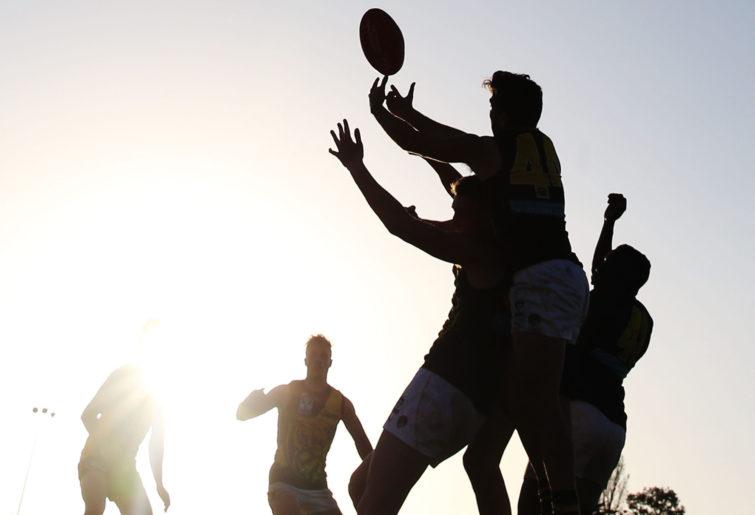Footy Fix: Ross Lyon is the AFL's most boring coach once again - and it's suffocating the Saints' season
On the scoreboard, it looks like a creditable St Kilda performance. A loss to a Port Adelaide outfit many see as a premiership contender…
Opinion
It’s the Thursday night training session before what would have been Round 7.
In any other year – and had 2020 not been upended by the pandemic – the Blackwood Football Club’s senior male players would have spent the night preparing for the weekend’s game.
There would’ve been the usual pre-training rendez vous in the change rooms, followed by drills washed down with a round of high fives and back slaps. Then everyone would file through communal showers and into the club rooms for some crumbed chook. Conversations between people in close proximity would happily hum along.
But like everything else this year, this Thursday’s training is from outer space.
It’s 6.50pm, yet only half of the club’s 60-odd senior players are present. The rest were here, in the earlier time slot, but under strict instructions to disperse straight after their session.
The change rooms are locked, so upon arrival, players exit their cars and make a beeline for the oval, stopping only to notice the club president spraying Sherrins with sanitiser off to the side. Once in their marked-out patch of grass, it’s 45 minutes of socially distant drop punts and semi-circle work sans high fives.
Director Ben Kernich supervises the whole thing. It’s his job to ensure no groups exceed ten players or their allotted area, and other protocols set out by the government and SANFL are followed. Another volunteer is the Woods’ required COVID officer.

(Photo by Michael Dodge/AFL Media/Getty Images)
“It took some time to read through all the protocols, but once we got our heads around it, it all came together pretty quickly,” says Kernich.
“It’s nothing like full training, but it’s been worth it to keep everyone connected and upbeat about a potential season.”
South Australian clubs like Blackwood have had a week’s head start on their Victorian counterparts, who are only allowed to recommence restricted training from this week. There, in wake of similar return-to-play guidelines being announced, talk back radio has been inundated with callers questioning why they would even bother.
The logistics required would be too cumbersome, and with no games yet booked in, motivation levels would be low, they lament. Some leagues have pulled the pin altogether.
But speaking for Blackwood – a club admittedly blessed with a large surrounding population supplying plenty of volunteers – Kernich says they never thought twice about re-commencing.
“At the end of the day, the football club provides so many social and physical benefits to its members and the wider community, and we want to do what we can to help provide them,” he says.
“Our object is to promote, foster and encourage all forms of sport and in particular Aussie rules, so while it might be easy to throw in the towel because of the extra protocols and time it (training) now takes, we feel we must do what we can to achieve that objective, whatever speed bumps are put in front of us.”
Getting a season off the ground is another much more complex issue. A coronavirus outbreak at any club would likely derail the prospect for that league completely, with all matches needing to be completed by mid-October, when cricket moves in to rip the grass from the centre square.
It’s also thought the state government will need to tick off on at least some spectators being allowed in to watch, as it’s hardly financially viable for cash-strapped community clubs to put games on without compensation from the gate, bar or canteen. Players in many leagues – the SANFL included – have already been told they’ll be playing for free.
“We’re very fortunate to be in South Australia. With such a low infection rate, we’re pretty hopeful of restrictions being eased to the point where we can get the season away with some sense of normalcy,” says Kernich.
As they constantly have for the past two months, societal expectations are shifting faster than anybody can adjust. Elements of pre-pandemic life coming back online have inspired sporting clubs like Blackwood to re-ignite the community flame.
Post training, the players can even purchase their usual Thursday night schnitzel to go, helping to re-integrate more volunteers and stimulate the club’s dormant economy.
The goalposts might be widening after all.